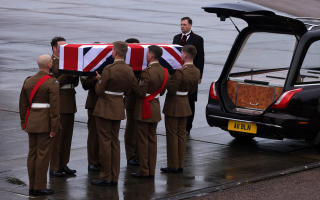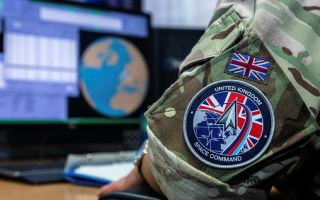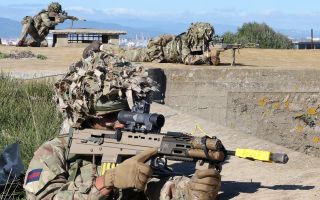Tri-Service
Comment: Syria Drone Strike - The Repercussions
Two years ago the British Parliament voted against the bombing of Syrian targets by UK forces. In simple terms: the government said it wanted to bomb but MPs said 'No'.
A few weeks ago the RAF used an unmanned Reaper drone to fire a missile that killed two British citizens in Syria. The RAF was ordered to do so because the best Intelligence analysis stated that one of the dead, Reyaad Khan was a member of Islamic State (IS) and was planning an attack in the UK.
An attack by the United States Air Force on the same man a few weeks earlier had failed.
Three major points arise: the Prime Minister David Cameron says the Attorney General has said that the attack was legal. The attack was made on a British target in a country with which the UK is not officially at war. Thirdly and perhaps most importantly the precedent of the strike will suggest that in extreme circumstances on unpublished intelligence evidence and legal judgement similar strikes will be made.
Moreover, in spite of Parliament's verdict two years ago, and recent statements by the Prime Minister and his briefers in Downing Street, the government has always believed it had the right to go against Parliamentary authority if and when there was evidence that the security of the UK was threatened. During the summer of WWII commemoration services including VJ Day, the Prime Minister believed such circumstances existed.
More from Forces.tv: RAF Blow Up IS Boat
If Downing Street is correct - and talking in Washington last night there is US Intelligence analysis that says he is - there is evidence that the atrocities that we have seen in the UK and more recently in France are now being planned as a direct part of the IS war. Small groups of jihadist fighters in Syria and elsewhere now have authority to direct where and when such attacks should take place.
The deaths of Islamic State plotters will not put away the threat of attack. It could even make it more likely and harder to prevent.
Reyaad Khan and his motive was no secret to Intelligence agencies. He was monitored, his every signal and utterance was followed.
There is now the real possibility that a small bunch of IS supporters or an individual operating in the UK will carry out an attack in retaliation. It could easily come from a couple of radicalised individuals off the intelligence and security radar.
That was how Fusilier Lee Rigby was hacked to death in Woolwich on the afternoon of 22 May 2013. The people we hoped were keeping us safe did not see the attack coming. Nor could they have done.
So when the Prime Minister goes into the Commons to ask MPs for their approval that the RAF can join the bombing operation over Syria he could be in a better position to get it, even though the almost academic importance of targeting policy will disappear in the show of hands.
Furthermore, Mr Cameron has demonstrated that because the UK is at war with Islamic State single operations, such as that against Reyaad Khan et al, will not need Parliament's approval.
He has also told senior MPs, who believe the UK should do no more in Syria than humanitarian and Intelligence gathering, that it is all too late for that hands-off policy.
The Attorney General has effectively told David Cameron that if there is reasonable proof that a "baddie" (the current Number 10 jargon) is planning to run an operation directly into the UK - where there is a large number of radicalised groups - then any PM has the authority and need seek no further authority to approve additional strikes.
This summer Britain changed its ground rules. Parliament may feel left out but there is nothing it can do about it. The announcement on Monday will be followed by others.
Christopher Lee is BFBS's Defence Analyst - He can be heard on Sitrep, the only radio programme to take a detailed weekly look at the issues in Defence.









